Find the charge on the four capacirtors of capacitances 1(mu)F,2(mu)F,3(mu)F,and 4(mu)F, shown in figure.
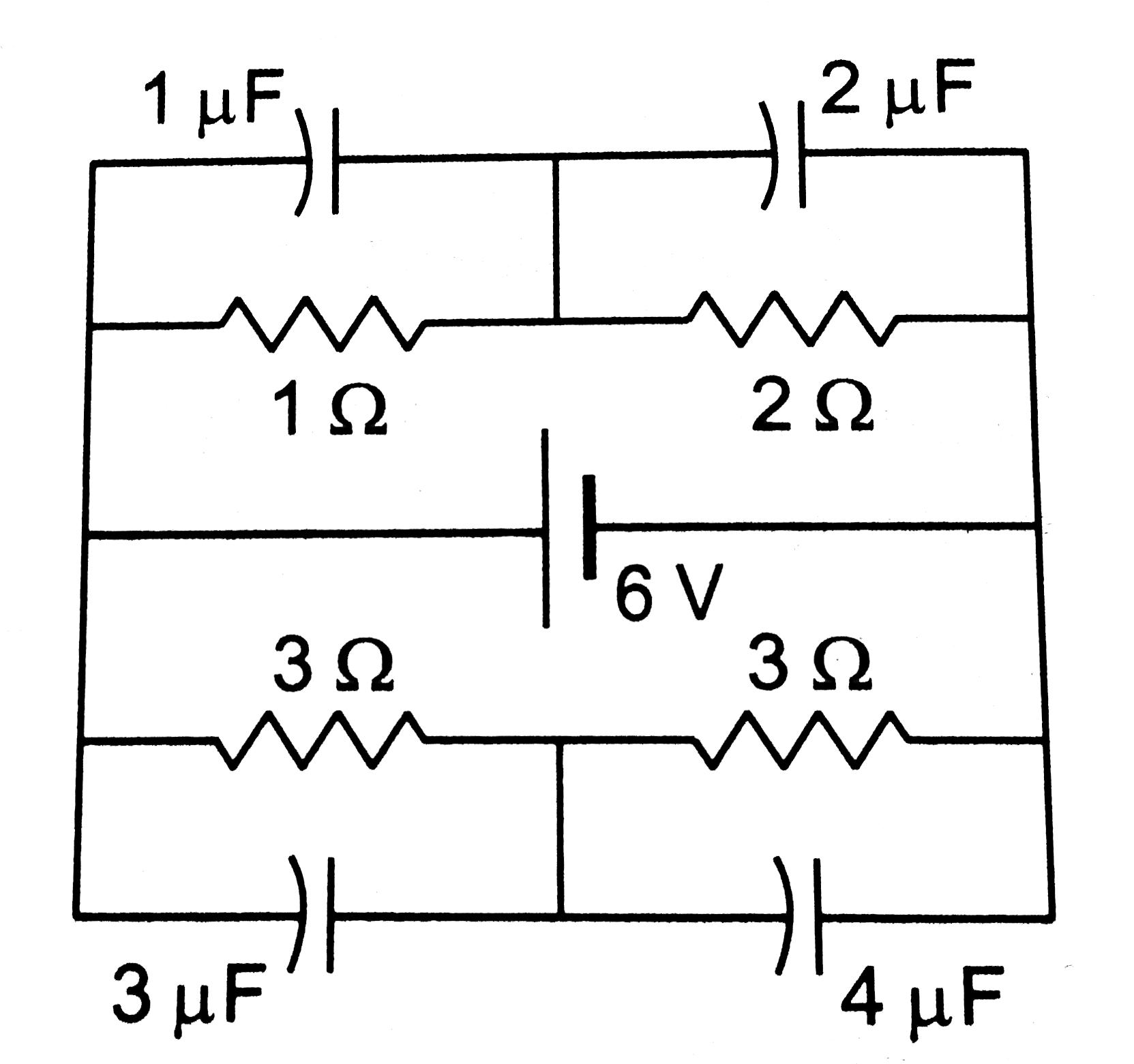 Solution in Tamil
Solution in Tamil
At steady state no current flows through
the capacitors .
Req=3×63+6=2Ω
i=62=3
Since current is divided in the inverse ratio
of resistance in each branch, 2Ω will pass
through 1,2Ωbranchando≠through3,<br>3Omegabranch.<br> V_AB = 2 xx 1 <br> = 2V <br> Q on 1 = mu f capacitors <br> = 2 xx 1muc <br> =2 muc <br> V_BC = 2 xx 2 = 4V. <br> Q on 2 = 2 mu f capacitor = CV <br> = 2 xx 4 mu c <br> = 8 mu c <br> V_DE = 3 xx 1 = 3V <br> Q on 4 = 4 mu f capacitor <br> = 3 xx 4 mu c <br> =12 mu c <br> V_FE = 3 xx 1 = 3V <br> Q across 3 = 3 mu f capacitor <br> 3 xx 3 mu c <br> = 9 mu c .
Topper's Solved these Questions
- ELECTRIC CURRENT IN CONDUCTORSBOOK - HC VERMACHAPTER - ELECTRIC CURRENT IN CONDUCTORSEXERCISE - objective 2
9 Videos
- DISPERSION AND SPECTRABOOK - HC VERMACHAPTER - DISPERSION AND SPECTRAEXERCISE - Exercises
11 Videos
- ELECTRIC CURRENT THROUGH GASESBOOK - HC VERMACHAPTER - ELECTRIC CURRENT THROUGH GASESEXERCISE - Exercise
23 Videos
Similar Questions
Electrons are emitted by a hot filament and are accelerated by an electric field as shown in figure .The two stops at the left ensure that the electron beam has a uniform cross-section.
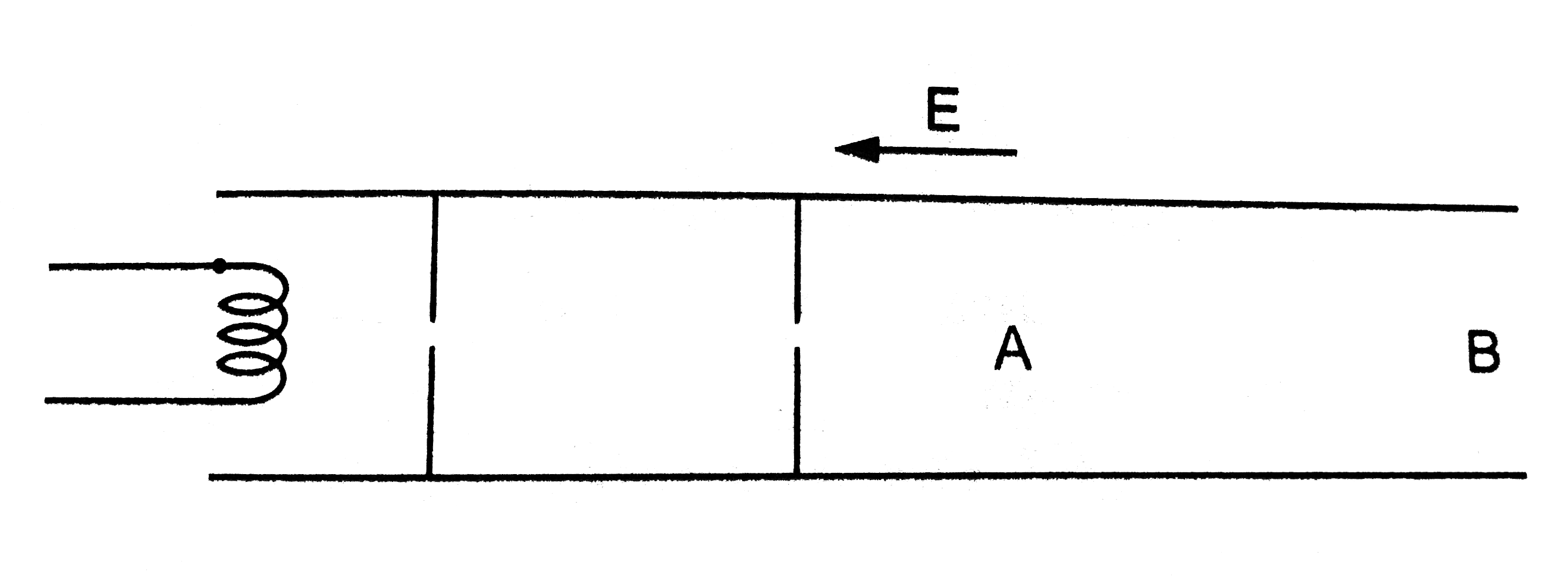
View SolutionA flint glass prism and a crown glass prism are to be combined in such a way that the deviation of the mean ray is zero. The refractive index of flint and crown glasses for the mean ray are 1.620 and 1.518 respectively. If the refracting angle of the flint prism is 6.0∘, what would be the refracting angle of the crown prism ?
View SolutionA discharge tube contains helium at a low pressure. A large potential difference is applied across the tube. Consider a helium atom that has just been ionized due to the detachment of an atomic electron. Find the ratio of the distance travelled by the free electron to that by the positive ion in a short time dt after the ionization.
View SolutionThree capacitors of 3μF,2μF and 6μF are connected in series. When a battery of 10V is connected to this combination then charge on 3μF capacitor will be.
View SolutionA combination arrangement of the capacitors is shown in the figure
(i) C1=3μF,C2=6μF and C3=2μF then equivalent capacitance between 'a' and 'b' is :
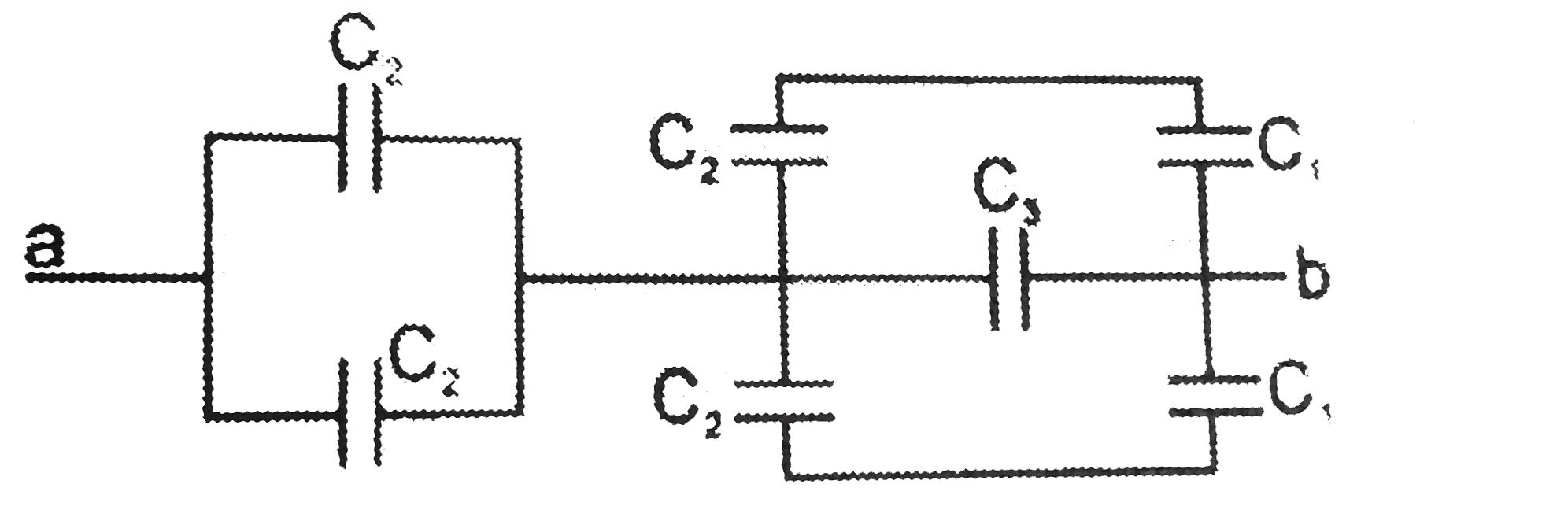
View Solutionसंलग्न चित्र a में ज्ञात कीजिये- a बिंदु a तथा b के बीच तुल्य धारिता, (b ) 2μF धारिता के संधारित्र की प्लेटों के बीच विभवांतर , ( c ) 3μF धारिता के संधारित्र पर आवेश, ( d ) 20μF धारिता के संधारित्र में संचित्र ऊर्जा, ( E ) 12μF धारिता के संधारित्र में संचित ऊर्जा।
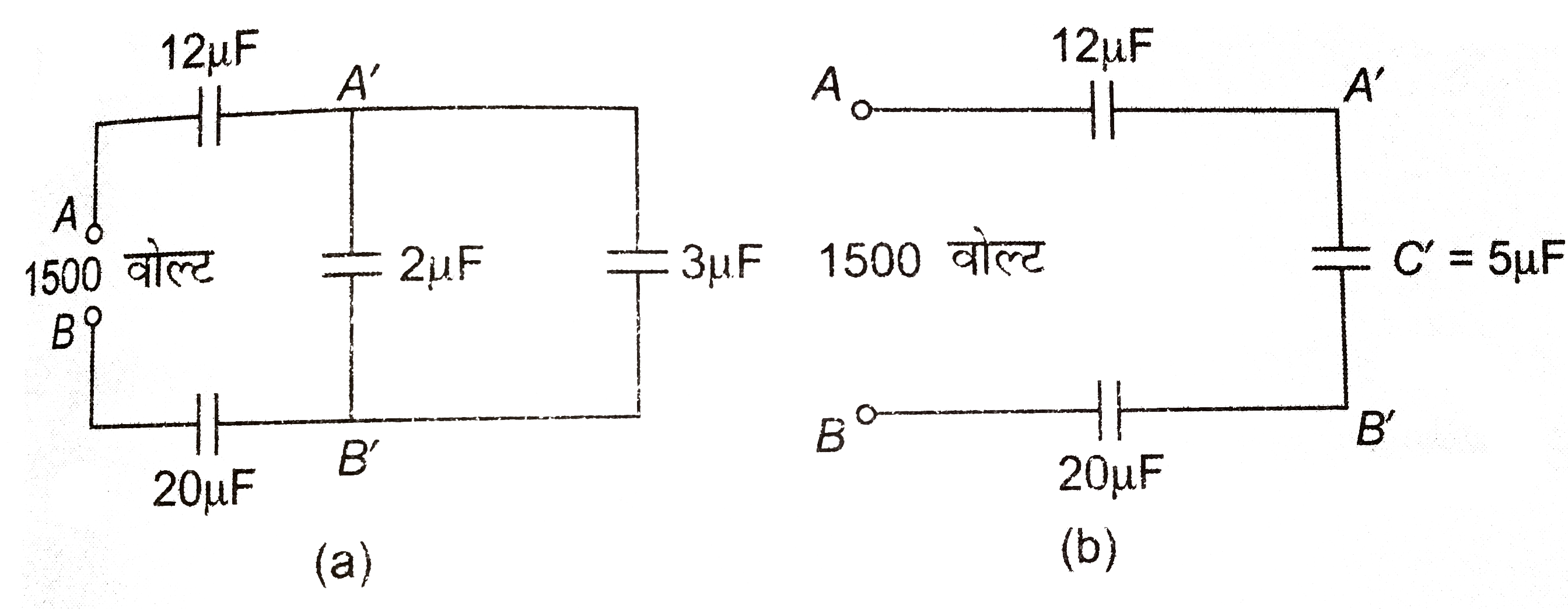
View Solutionचार संधारित्रों में प्रत्येक की धारिता 1μF है। आप इन्हे किस प्रकार संयोजित करेंगे कि तुल्य-धारिता
(a) 0.75μF, (b) 43μF (c) 1μF तथा (d) 2.5μF हो
View Solution3μF,3μF और 6μF धारिताओ के संधारित्रों को इस प्रकार संयुक्त कीजिए कि तुल्य-धारिता 5μF हो।
View Solution2, 6, 12 तथा 20μF धारिता के चार संधारित्र समांतर-क्रम में जोड़े गये है। तुल्य-धारिता ज्ञात कीजिए। यदि यह प्रबंध 1000 वोल्ट के विभव पर आवेशित किया गया है तो इस पर आवेश की मात्रा ज्ञात कीजिए 12μF धारिता वाले संधारित्र पर आवेश कितनी होगा? 20μF धारिता वाले संधारित्र में कितनी ऊर्जा संचित होगी?
View SolutionTwo capacitors 2μ F and 6μ F are in series the effective capacitance of the system is μ F will be .....??
View Solution[" Find the equivalent "],[" capacitance between "],[" A&B "],[qquad [*| mu|],[A]|||_(1)|^(2 mu f)|^(4 mu f)|_(2 mu f)^(2 mu f)],[]
View SolutionIn the arrangement C1=10μ,FC2=10μF and C3=20μF . What is the equivalent capacitance ( in μF ) between points A and B ?
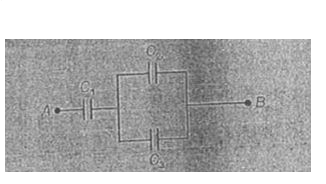
View SolutionIf equivalent capacitance of given circuit is 15 mu F then C = ........ . (a) 5 mu F (b) 35 mu F (c) 50 mu F (d) 60 mu F
View SolutionIn the circuit shown in figure. Charge stored in 6μF capacitor will be (C=6μF)

View SolutionCapacitance of a sphere A is 4μF while of another sphereB ,it is 8μF .If on sphere A ,there is a charge 2μC and on B the charge is 4μC ,then the ratio of potential of the spheres is
View SolutionIn the given circuit, if charge on 6 mu F capacitor is 10 mu C , then the charge (in mu C ) on 4 mu F capacitor will be '(##CEN_KSR_PHY_JEE_CO19_E01_010_Q03##)'
View Solution
